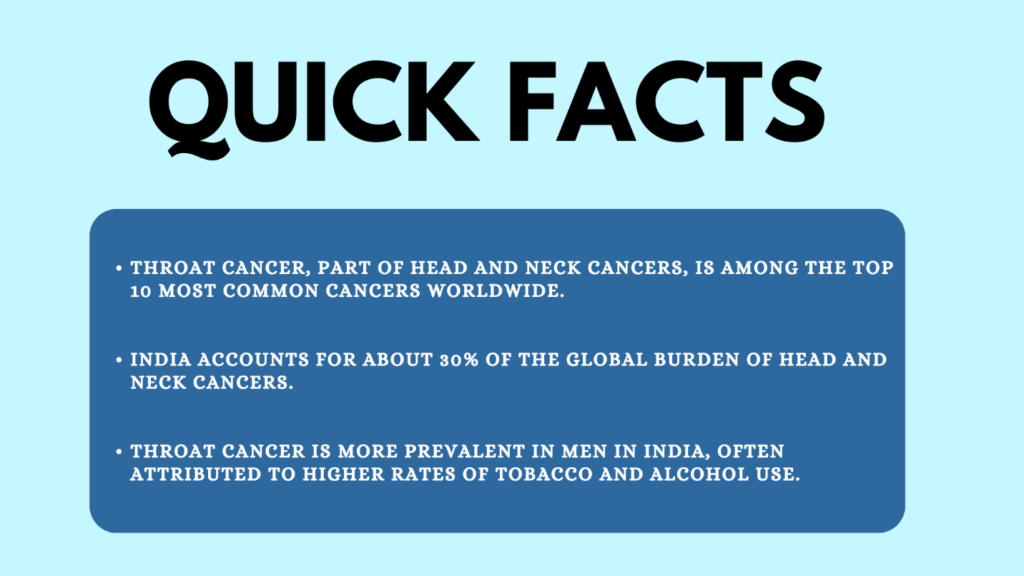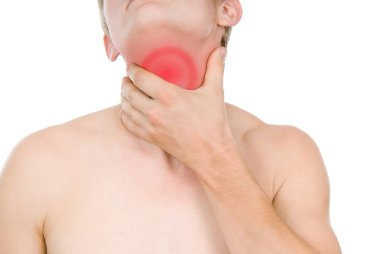- Have any questions?
- +91 90084 82284
- info@drsridharpsoncologist.com
6 Weeks of Chemo and Radiation for Throat Cancer

Radiation Therapy After Prostatectomy
April 18, 2024
Proton Therapy for Rectal Cancer
July 8, 2024Throat cancer is the growth of malignant cells in the throat (pharynx) or voice box (larynx). These cancers can lead to difficulties in speaking, swallowing, and breathing. The standard treatment includes 5- 8 weeks of chemo and radiation for throat cancer.
Dr. Sridhar PS, a renowned radiation oncologist providing Cyberknife treatment in India , says:
“Undergoing chemo and radiation at the same time for throat cancer is challenging. This intensive regimen aims to eliminate cancer cells while preserving vital functions-. The process demands resilience, comprehensive care, and informed guidance.”
Understanding what to expect after 6 weeks of chemo and radiation for throat cancer is crucial. It helps patients and their families prepare for the recovery process.
What Happens After 6 Weeks Of Chemo And Radiation For Throat Cancer?
After the 6-week course for throat cancer, patients undergo a recovery period and monitoring.Follow-up appointments with the oncologist assess treatment effectiveness through:
- Physical exams
- Imaging tests like CT scans or MRIs
- Biopsies if there are concerns about remaining cancerous cells

It is important to have supportive care, including pain management, nutritional support, and addressing side effects. Your doctor may recommend rehabilitation services to help regain function and improve quality of life.
Psychosocial support can help cope with long-term changes and emotional challenges. Oncologists and care teams work closely with patients to create a comprehensive follow-up care plan. This plan addresses medical and emotional needs, ensuring a holistic approach to recovery.
Is 6 Weeks Of Chemo And Radiation Effective For Treating Throat Cancer?
A 6-week regimen of chemotherapy and radiation is a commonly used protocol for treating throat cancer. The goal is to kill cancer cells while sparing healthy tissues to preserve the organs and their functions.
Chemoradiation is a combination therapy designed to maximize the cancer cell kill rate. Studies show this intensive regimen is effective, especially in early to moderately advanced cases. However, results can vary based on factors like cancer stage and patient health.
Are you or a loved one facing throat cancer treatment? Pleaseseek advice and support from a cancer specialist to confidently navigate this journey.
The success rate after 6 weeks of chemo and radiation for throat cancer
The success rate of a 6-week chemoradiation for throat cancer can vary. It depends on several factors, including the cancer’s stage and the patient’s health. For early-stage throat cancer, the success rate can be as high as 80-90%. A significant number of early-stage patients achieve complete remission. The success rates may be lower but still substantial for more advanced stages.

“These results emphasize the importance of early detection and treatment,” says Dr. Sridhar PS, a distinguished radiation oncologist in India. “Continuous follow-up and monitoring are essential to address any recurrence promptly and maintain long-term health.”
6 weeks of chemo and radiation is no walk in the park. Continue reading on what to expect and insights from Dr. Sridhar on managing side effects.
Side Effects Of Chemo And Radiation For Throat Cancer
Fatigue

Fatigue is often due to the body’s response to cancer therapies and the effort required for recovery. This exhaustion can be persistent and may worsen as treatment progresses.
Managing fatigue involves balancing activity and rest, maintaining good nutrition, and staying hydrated.
Nausea and Vomiting
Nausea and vomiting are frequent side effects of chemotherapy. These symptoms can impact a patient’s quality of life and nutritional status.
Doctors may prescribe antiemetic medications to help manage these effects. Eating small, frequent meals and staying hydrated also helps. IGRT and IMRT specialist Dr. Sridhar PS recommends avoiding strong-smelling or greasy foods.
Mouth Sores
Oral mucositis (mouth sores) are painful ulcers that can develop due to chemoradiation. They can make eating and speaking challenging.
Management includes using topical analgesics and a soft diet to reduce irritation. Regular dental checks and good oral hygiene can help prevent secondary infections and facilitate healing.

Loss of Appetite
Loss of appetite is often caused by side effects like nausea, mouth sores, and changes in taste. Eating becomes a challenge, impacting health and energy levels.
Nutrient-dense, small, and frequent meals are crucial. Consulting a nutritionist can help in creating a suitable diet plan.
Changes in Taste and Smell
Changes in taste and smell can affect the ability to enjoy food, appetite, and nutrition. Foods may taste bland, metallic, or different from usual.
Patients can experiment with different flavors and textures to find more tasty options. Good oral hygiene and staying hydrated can also help mitigate these changes.
Voice Changes
The treatment may impact the vocal cords and surrounding tissues. Patients might experience hoarseness, a weak voice that is reversible after treatment .
Speech therapy can help patients regain their vocal strength and clarity. Avoid straining the voice and follow any vocal care instructions provided by the healthcare team.
Difficulty Swallowing
Difficulty swallowing (dysphagia) can result from sore throat, dry mouth, or radiation effects on swallowing muscles.
Modifying food textures and using thickening agents in liquids can ease swallowing. Professional guidance from a speech or swallowing therapist can be beneficial.
Sore Throat
Sore throat is one of the side effects of radiotherapy for throat cancer. It occurs due to the direct impact of radiation on the throat tissues. This can cause significant discomfort, particularly when swallowing.
Pain relief medications, soothing lozenges, and easy-to-swallow foods can be beneficial. Avoiding tobacco and alcohol can also help ease sore throat symptoms.
Dry Mouth
Dry mouth (xerostomia) occurs when radiation affects the salivary glands, reducing saliva production. This can lead to difficulties in speaking, swallowing, and maintaining oral health.
Staying hydrated and sucking on sugar-free lozenges can stimulate saliva flow. Maintaining good oral hygiene is essential to prevent complications such as tooth decay.
Skin Changes

Radiation therapy can cause redness, dryness, and peeling in the treated area. These skin reactions can be uncomfortable and need specific care.
Patients should keep the affected area clean and moisturized. They should avoid harsh soaps and irritants and protect the skin from sun exposure. Healthcare providers recommend using gentle skincare products to help manage these side effects.
If you find the side effects challenging, please consult a radiation specialist. A healthcare team can offer personalized advice and management strategies.
Let’s look at the recovery journey and what you can expect during this crucial phase.
How Long Does It Take to Recover from Chemo and Radiation?
Recovery from chemoradiation varies among individuals and can take several weeks to months. The initial phase involves managing mild side effects like fatigue, and oral discomfort. Patients may also experience lingering issues such as dry mouth and difficulty swallowing.
Dr. Sridhar PS, a Cyberknife specialist in India, says:
“Most patients feel better within 4 to 6 weeks after completing treatment. Full recovery, including the healing of tissues and regaining strength, can take up to 6 months or longer. Please follow your doctor’s advice and attend all follow-up appointments to monitor your progress.”
Conclusion
Throat cancer presents formidable challenges to patients and their families. Yet, timely treatment, including surgery, chemoradiation, immunotherapy, etc., can lead to positive outcomes. A standard approach involves 5 to 8 weeks of chemo and radiation for throat cancer. This approach is effective in eradicating cancer cells and preserving throat functions. However, it also brings various side effects that can affect quality of life.
Diligent monitoring and supportive care help manage side effects and promote long-term health. Personalized care plans, rehabilitation, and psychosocial support are crucial for successful recovery. Advancements in medical research and techniques continue to improve treatment effectiveness. They pave the way for more targeted therapies and better outcomes.
Qualified healthcare providers are always available to help you navigate your cancer journey. Don’t hesitate to reach out for the support you need.
FAQ
Can a 6-week treatment plan completely cure throat cancer?
While a 6-week treatment plan can attack cancer cells, the outcome varies for each patient. Complete cure depends on various factors, including:
- The stage of cancer
- The aggressiveness of the tumor
- Individual response to treatment
Are there any long-term side effects of undergoing chemoradiation for throat cancer?
Long-term side effects may include:
- Dry mouth
- Difficulty swallowing
- Changes in taste and smell
- Potential voice changes
Is it normal to have a sore throat after chemo treatment combined with radiation?
Sore throat after chemoradiation is normal. Radiation affects the sensitive tissues in your throat, causing soreness. You can take pain relief medicines, keep your mouth clean, and eat soft, soothing foods to feel better. Drink plenty of water and avoid smoking and drinking alcohol. If your sore throat does not go away or worsen, consult your doctor for guidance. They can help you manage the side effects of radiotherapy for throat cancer.
Are there alternative therapies or complementary treatments to help cancer patients?
Alongside conventional treatments, patients may explore complementary therapies to ease side effects. These include acupuncture, massage therapy, nutritional counseling, and mindfulness techniques. These complementary treatments can improve the quality of life during treatment and recovery.
What lifestyle changes can help the 6-week treatment for throat cancer work better?
Adopting a healthy lifestyle includes:
- Quitting smoking and avoiding alcohol
- A balanced diet rich in fruits, vegetables, and lean proteins to support the immune system
- Regular exercise, stress management techniques, and adequate rest for promoting long-term health.
Reference Link:
https://www.cancerresearchuk.org/about-cancer/mouth-cancer/treatment/chemoradiotherapy
